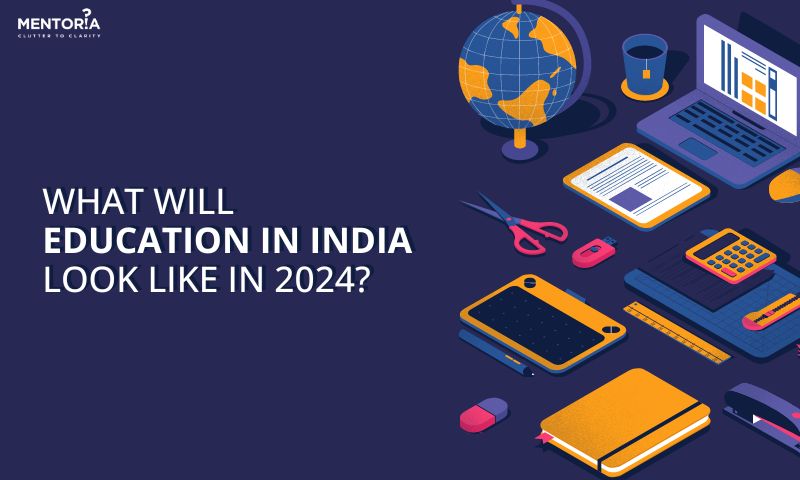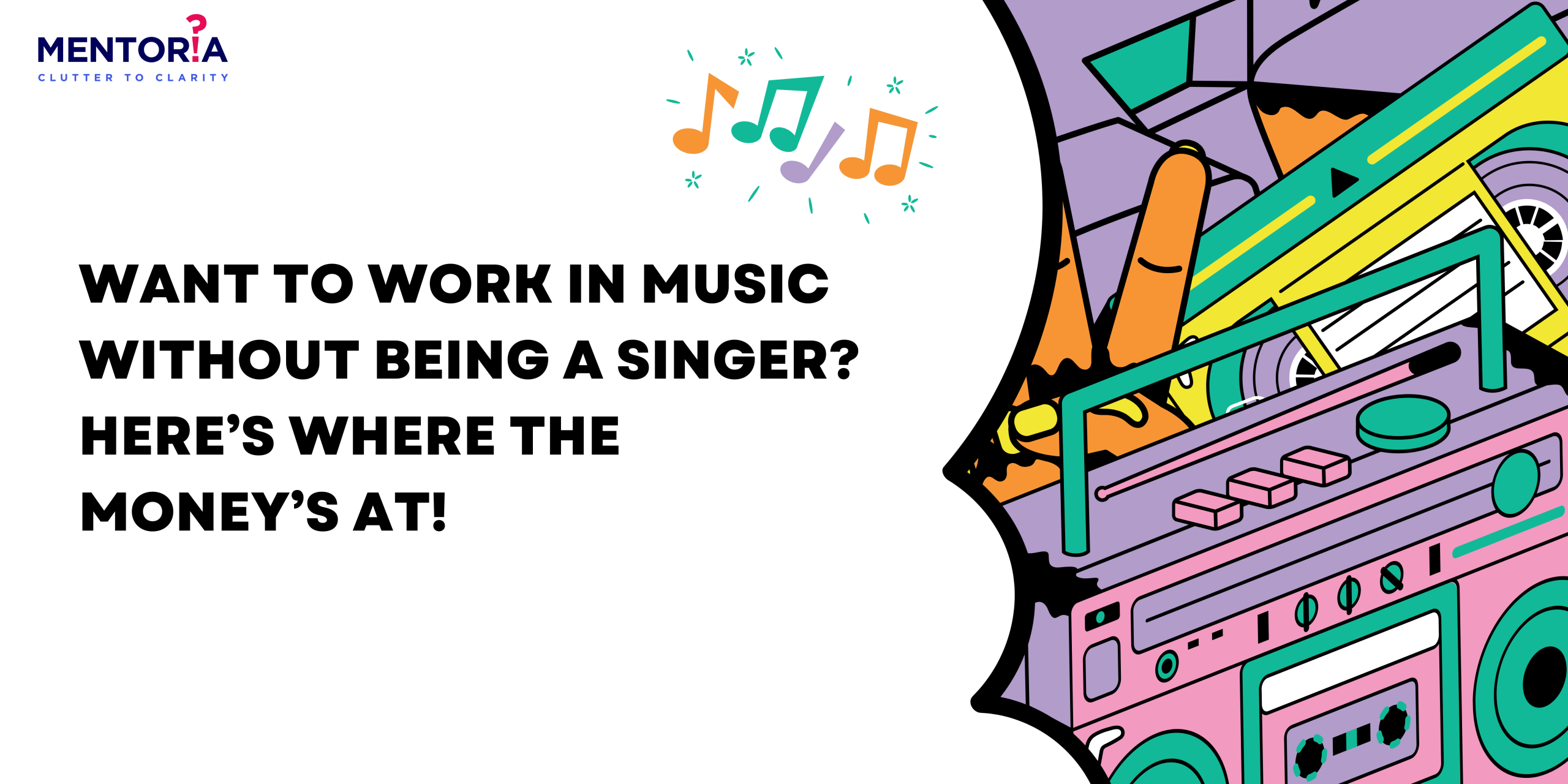What Will Education In India Look Like In 2024?

Jump to Section
From the days of Gurukul, where students learn by doing, to today’s classrooms, where textbooks take the lead, the education system has changed. Students once gained practical knowledge under ancient trees, and are now seated in classrooms, focusing on theoretical lessons. Let’s take a journey through time, exploring how education has shifted from hands-on experiences in Gurukuls to the current emphasis on classroom learning.
As technology continues to advance and new learning methodologies emerge, the landscape of education in India is poised to undergo substantial changes. From personalised learning experiences to the integration of digital tools, the education sector in India is on the brink of a revolutionary shift. In this article, we will delve into the trends and developments that will shape the way students learn and teachers instruct in the coming years, we will also discuss the new education policy of 2020.
India, renowned for its rich tradition of education, is embracing technological advancements to enhance the learning experience. With the rise of e-learning platforms like unacademy, byju’s etc. virtual classrooms, and gamification of education, students are no longer confined to the boundaries of traditional teaching methodologies. The education system in India is poised to undergo a major overhaul as institutions adapt to cater to the individual needs of students, fostering critical thinking and creativity.
Current Challenges In The Indian Education System
The Indian education system has been grappling with several challenges over the years. One of the key issues is the lack of access to quality education for all. Many students in rural areas still do not have access to proper infrastructure and qualified teachers. This divide hampers their ability to compete on an equal footing with their urban counterparts.
Another challenge is the rigid curriculum and assessment methods that focus more on rote learning rather than fostering critical thinking and problem-solving skills. The emphasis on memorisation often fails to equip students with the practical knowledge and skills required in the real world.
Additionally, there is a mismatch between the skills taught in educational institutions and the skills demanded by the job market. This gap has led to a high rate of unemployment among graduates, highlighting the need for a more skill-based education system.
Technological Advancements Shaping The Future Of Education
Technology is set to play a pivotal role in shaping the future of education in India. The integration of digital tools and platforms will enable students to access educational resources anytime, anywhere. E-learning platforms are already gaining popularity, providing students with a wide range of courses and study materials. These platforms offer flexibility and personalised learning experiences, allowing students to learn at their own pace.
Virtual classrooms are also on the rise, connecting students and teachers through video conferencing and collaborative tools. This virtual learning environment breaks down geographical barriers and allows students to interact with experts from around the world. It fosters a global perspective and exposes students to diverse ideas and cultures.
Personalised Learning And Adaptive Technologies
One of the key trends in education is personalised learning. With the help of artificial intelligence (AI) and machine learning (ML), educators can tailor learning experiences to individual students’ needs. Adaptive learning platforms analyse students’ strengths and weaknesses and provide customised content and assessments to maximise their learning outcomes.
Personalised learning paths empower students to take ownership of their education and learn at their own pace. It promotes self-directed learning and encourages students to explore their interests and passions. This approach not only enhances academic performance but also nurtures important life skills such as critical thinking, problem-solving, and creativity.
Exploring The Use Of Virtual And Augmented Reality In Education
Virtual reality (VR) and augmented reality (AR) are transforming the way students learn by creating immersive and interactive experiences. VR allows students to explore virtual environments, bringing abstract concepts to life. For example, students can virtually visit historical sites or explore human anatomy in three dimensions.
AR, on the other hand, overlays digital information onto the real world, enhancing the learning experience. Students can use AR apps to visualise complex concepts, perform virtual experiments, or interact with virtual objects. These technologies engage students’ senses and make learning more engaging and memorable.
AI And Machine Learning in Education
Artificial intelligence and machine learning have the potential to revolutionise both teaching and assessment techniques. AI-powered chatbots can provide instant support to students, answering their questions and guiding them through difficult concepts. This personalised assistance ensures that students receive the help they need, even outside of traditional classroom hours.
Machine learning algorithms can also analyse large amounts of data to identify patterns and trends in students’ learning behaviours. This information can be used to provide targeted interventions and personalised feedback to enhance learning outcomes. AI-powered assessment tools can evaluate students’ understanding and provide instant feedback, enabling teachers to identify areas of improvement and adjust their teaching strategies accordingly.
Digital Learning With Online Education Platforms
Online education and e-learning platforms have gained significant momentum in recent years. These platforms offer a wide range of courses and study materials, catering to diverse learning needs. Students can access lectures, videos, quizzes, and interactive exercises, making learning more engaging and interactive.
The flexibility of online education allows students to balance their studies with other commitments, such as work or family responsibilities. It also eliminates geographical barriers, enabling students from remote areas to access quality education. Online education is not limited to academic subjects; it also provides opportunities for vocational training and skill development.
Skill-Based Education And Vocational Training
The future of education in India will focus on equipping students with the skills required for the modern workforce. The traditional emphasis on academic knowledge will be complemented by vocational training and skill development programmes. Students will have the option to choose from a wide range of vocational courses that align with their interests and career goals.
Skill-based education instils practical skills such as problem-solving, communication, teamwork, and adaptability. It prepares students for the challenges of the job market and enhances their employability. Vocational training programmes will bridge the gap between education and industry, ensuring that students are equipped with the skills demanded by employers.
Government Initiatives And Policies For The Future Of Education
The Indian government has recognised the need for educational reform and has introduced several initiatives and policies to shape the future of education. The National Education Policy 2020 aims to transform the education system by focusing on holistic development, flexibility, and innovation. It emphasises the integration of technology, skill-based education, and experiential learning.
The government has also launched programmes such as Digital India and Skill India to promote digital literacy and skill development among students. These initiatives aim to bridge the digital divide and ensure that every student has access to quality education and opportunities for skill enhancement.
National Education Policy
The National Education Policy 2020 aims to transform India into an equitable and vibrant knowledge society by providing high-quality education to all. It focuses on the five guiding pillars of Access, Equity, Quality, Affordability, Accountability, and Accountability. The policy stresses on developing cognitive, higher-order, and social/emotional skills in school education, including cultural awareness, empathy, perseverance, teamwork, leadership, communication, and more. It aims to universalise pre-primary education and provide special emphasis on foundational literacy/numeracy in primary school and beyond by 2025.
It recommends reforms in schools, curriculum, exams, assessment system, teacher training, transformation of the curriculum including pedagogy with 5+3+3+4 design covering children in the age group 3-18 years and education regulatory framework. It also seeks to increase public investment in education, strengthen technology, and focus on vocational and adult education. The curriculum load should be reduced to its core essential content for holistic, discussion, and analysis-based learning.
Embracing the Future of Education With Mentoria
The future of education in India is bright and full of possibilities. Technological advancements, personalised learning, and skill-based education are set to revolutionise the way knowledge is imparted and skills are developed. The integration of AI, VR, AR, and adaptive technologies will create immersive and interactive learning experiences that cater to the individual needs of students.
As we step into 2024, let us embrace this future and work towards creating an inclusive and innovative education system. By leveraging the power of technology and adopting progressive policies, we can empower students to thrive in the digital age and contribute to the growth and development of the nation.
In conclusion, the future of education in India is one where traditional teaching methodologies are blended with technology, creating a dynamic and engaging learning environment. Let us seize this opportunity to shape the future of education and unlock the potential of every student in India.
Uncover your strengths and growth areas with Mentoria’s career guidance. Whether you aim to excel in your current role, explore new industry paths, or transition to a different field, our counsellors craft a personalised action plan for you. With 3 streams, 850+ courses, and 12,000+ careers, we guide you to your ideal fit. Call us to chat with career mentors and begin your journey to a fulfilling and successful future.











